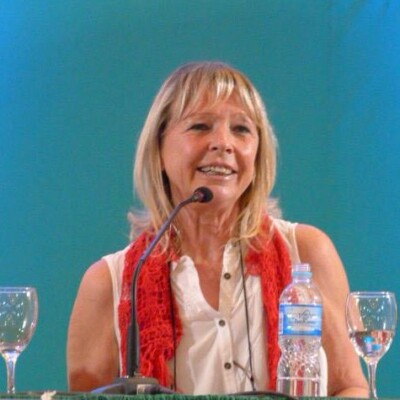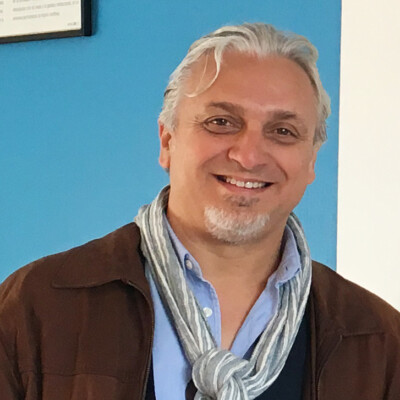¡Welcome to!
The IV International Congress of Social Work
Resistance and the emerging of changes in context of crisis.
Presentation
the challenges of social work public incidence.
The Network of Schools of Social Work of Chilean Universities CRUCH calls for the IV International Congress of Social Work to take place in the city of Valparaiso, Chile, projecting itself toward Latin America and other regions of the world. The congress aims to develop professional and disciplinary discussions about social work in the current context of the crisis crossed by the COVID-19 pandemic, which has exposed the fragility and precarity of life under neoliberal states and reduced rights. This precarity expresses in multiple spaces impacting diverse social groups from different latitudes. Among the most impacted, we found those countries from the global south but also those from the global north, which already, during the 2008 crisis, experienced an exacerbation of the phenomena of inequality, poverty and exclusion in territories that were seen as characteristic of the “third world”.
Main topic IV International Congress
of Social Work
Resistance and the emerging of changes in context of crisis.
The challenges of social work public incidence.
Central Speakers

Susana del Valle Cazzaniga
Argentina. Social Worker, Doctor in Social Sciences. Professor of the Social Work master program in the faculty of Social Work at the “Nacional de Entre Rios” university; working as well in the universities “Nacional de la Plata” and “Nacional de la Patagonia San Juan Bosco”.
She has written numerous disciplinary texts about topics such as social work’s academic training, and the construction of the profession from the perspective of sociocultural and political changes in relation with ideology, ethics, social rights, and the social question. Among her many writings, Susana’s more influential books are: “Intervención Professional. Legitimidades en Debate” (Professional Intervention. Legitimacies in debate), and “Hilos y Nudos: La formación, la intervención y lo político en Trabajo Social” (Threads and Knots: Training, Intervention and Politics in Social Work).

Valentín González Calvo
Spain. Diplomate in Social Work, Sevilla University. Sociologist, Pontificia de Salamanca University and Doctor by the Pablo de Olavide University. Master in Family Orientation; master in Thanatology; and master in Art-therapy.
Professionally, he has worked in different areas such as communitarian social services in rural areas; specialized social services for blind and visually impaired people; and as grief therapist with people and families in the association “Alma y Vida” where he is co-founder.
Methodology
The IV International Congress of Social Work, to take place on October 19, 20 and 21, 2022, is organised around a central theme articulated through 5 axes, each with sub-axes, which will be approached through presentations, symposiums, and central conferences (with keynote speakers).
The methodology has been adjusted to the sanitary conditions imposed by the COVID-19 pandemic, which has required developing forms that protect participants’ security. In order to do that, the format of the congress will be virtual, which we think can strengthen the impact of the congress considering how its characteristics should contribute to the democratisation of participation, widening the number of national and international participants. Additionally, it is possible to widen the repertory of foreign guests that can present readings and interpretations about social work that can enrich the discussions and interchanges.
Round tables of presentations by axes
Organised through presentation panels according to the five congress axes, following particular topics or sub-axes. The round tables will be the chance to listen to the proposals and challenges of social workers’ colleagues in each theme.
Conversations and discussions are to be addressed by members of the academic commission of the congress, where each panel session will continue with time for comments through which participants will have the chance to interact with the presentation speakers, including time for Q&A.
We have decided that in the context of the IV International Congress of Social Work, presentations must develop through audio-visual capsules (short videos). Moreover, it will be required that after the selection of the presentation proposals to participate in the congress, each selected participant send his/her presentation in a video format (mpg or recorded ppt or other formats) of 10 minutes maximum to make efficient use of time. The organising committee will contact each participant in due time to inform them about the deadlines for sending the capsules
Capsule duration
10 minutes
Video format
MPG, Recorded PPT or other audiovisual format
Deadline
September 9, 2022.
Symposiums
Symposiums are a set of interventions (presentations or another modality) that group around a central topic aligned to the congress’s five axes or central theme.
Methodologically, symposiums seek to break with the conventional format of consecutive presentations to give more focus to the discussion and interchange between the speakers and audience.
We call for symposium proposals that bring together participants from diverse origins and trajectories. Symposiums can include the participation of academics, professionals, postgraduate students and other social actors (i.e. members of social movements). The goal of symposiums is to favour a space for meeting and discussion between diverse actors.
The presentation proposals will be reviewed by the congress academic commission, after which authors will receive the proper resolution (accepted/rejected).
Requirements
- Trajectory, experience or cumulative collective production on the proposed topic.
- Special priority will be given to proposals articulating local debates and reflections, including a Latin American view.
- Diversity of actors, institutions and organizations.
Presentation format
- Symposium title.
- Identification and justification of the congress axis corresponding to the proposal.
- Information about symposium participants (members) and coordinator, indicating names, degrees, institutions/organizations, plus a cv summary (5 lines maximum).
- Symposium abstract (between 800 and 1200 words), including all presentations’ titles.
- Proposals can be written in Spanish, English and Portuguese.
Evaluation Criteria
- Each symposium can have between 3 and 5 participants. Symposium sessions can last for 2 hours.
- Symposiums must privilege the interaction between academic centres, research, study or professional groups, and postgraduate students from different contexts.
- We suggest the presentations included in each symposium last for 15 or 20 minutes to allow enough time for questions and discussions. Those leading the symposiums can decide about the participation dynamics as long as they guarantee proper time and mechanisms for participant discussions.
- All participants and speakers can obtain participation certificates as long as they are enrolled and registered in the congress.
Duration time
2 Hours (15 to 20 minutes of presentation)
Format
abstract, between 800 and 1200 words
Deadline
September 9, 2022
Book Presentations
The congress will give space for the virtual presenting/launching of books for those interested. The presentations must develop through audio-visual capsules (short videos in mp4, avi., mov or other similar formats) from 20 to 30 minutes maximum. The deadline for sending the videos is September 9, 2022.
Only authors or co-authors can deliver presentations of the books. In the case of co-authoring, the antecedents of all authors must be indicated, filling an “authorization form” (which will be available on the congress website) for the diffusion and use of the material to be presented.
All congress participants will have access to the presentation videos available on the congress website.
The presentation proposals will be reviewed by the congress academic commission, after which authors will receive the proper resolution (accepted/rejected).
The criteria for sending book presentations are the following:
- Topics related to some of the congress axes and sub-axes.
- Books published since 2019 to date.
- Participants’ enrollment must be in the category of presentations.
Video duration time
20 to 30 minutes
Video format
MP4, AVI, MOV or similar
Deadline
September 9, 2022
Payments and Registration
Program
Contact
Complete all the information required in this form to make inquiries or contact the organization of the activity. Write to us at consulta@congresointernacionalts.cl







